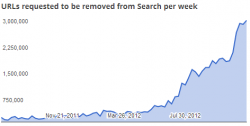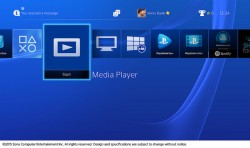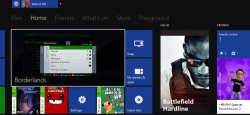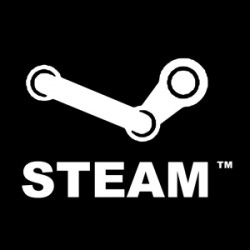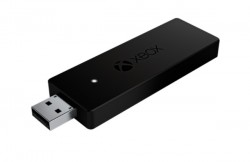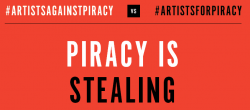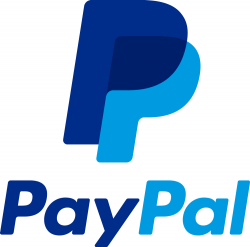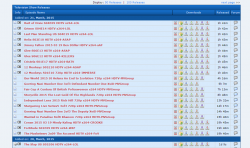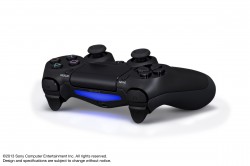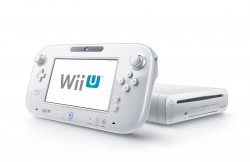Well E3 came and went, and both Sony and Microsoft had some great announcements, even if some were definitely way overdue (*cough*, DLNA support, *cough*), and even if some took everyone completely by surprise (*cough*, Xbox 360 backwards compatibility, *cough* – I really need to get this cough looked at).
I think I might have just spoiled some of this week’s news stories. Better this than having a key plot development in the Game of Thrones season finale being spoiled mid-episode while I was searching for background info on Meryn Trant on my phone – thanks a lot Variety! Don’t worry, while we talk a lot about Game of Thrones in this WNR, there won’t be any spoilers.
![]()
WTF? Those familiar with Game of Thrones will also be familiar with this expression, and the season 5 finale was no different. While some of the twists and turns on the show come totally unexpected for the unsuspecting viewer (when it comes to guessing what fate will befall the truly honorable citizens of Westeros, and there aren’t many of those left, we’ve become more and more cynical I think), what was a total non surprise was the fact that a new piracy record has been broken again for the season finale, a record that was last set only a couple of weeks ago by another GoT episode.
But it’s not so much a case of more people downloading, and less people paying – ratings for the show are at a record too – it’s just that the show has become so popular that piracy inevitably goes up (and given the way the season 5 finale ended, expect the season 6 premier to break a couple of more records again).
For HBO, they definitely can do more to convert at least a small group of downloaders into paying customers, first by lowering the price of HBO Now, and by making it possible to watch new episodes via streaming in other parts of the world without having to be tied to a cable service (either by making HBO Now available, or selling the license to local streaming platforms).
But even if they do that, a large portion of the viewing public will still be downloading. Just take a look at the piracy problem with Netflix’s Orange is the New Black, despite Netflix’s ubiquity and low entry point when it comes to pricing, some will still pirate (and that some includes many who already pay for Netflix, but want a way to watch these episodes offline). So piracy will never be eliminated, but HBO can definitely do more to convince those willing to pay, to pay something.
——
Google’s pretty mad these days. At Mississippi State Attorney General Jim Hood and his MPAA backers, mainly. The search giant is finally using some of its massive cash reserves to hire a lawyers or a hundred to punish the MPAA, via Hood, for trying to mess with them (Hood tried to build case against Google, with the MPAA’s help, in a very clumsy attempt to bring back SOPA like legislation on the state level – but the Sony hack revealed all, forcing Google to on the legal offensive).
With Google winning in the courts against Hood, the search giant then started to target the puppetmasters, and when the MPAA refused to hand over internal documents, Google sued them too. The MPAA has just responded to Google’s lawsuit, and they really didn’t hold anything back. The MPAA accuses Google of both helping to facilitate and also profiting from piracy, and says Google’s lawsuit is nothing but a PR campaign.
Interesting, the MPAA argues that Google is trying to make them look bad by making public Hollywood’s anti-piracy strategy. I’m glad the MPAA finally agrees that their anti-piracy strategy is naturally unpopular, and that the truth is all you need to make them look bad!
![]()
Both Sony and Microsoft have had a good E3 (as for Nintendo …), but among Sony’s big PS4 announcements, the one that’s most interesting to me and probably to readers here would be the announcement of a new, proper, media player, for the company’s flagship console. Finally, we get back DLNA playback and USB media support, and as a bonus, we also now get native MKV playback too.
Better late than never, I suppose. And I can finally seriously consider replacing my PS3 with the PS4 as my hub of all things entertaining.
For Microsoft, their big surprise announcement was not something new, but something old. Or rather, backwards compatibility to allow you to play your old Xbox 360 games on the Xbox One. Insert your old Xbox 360 game disc, the 360 emulator will load up and you’ll be able to instantly play one of the 100 titles that are supported currently. Backwards compatibility also works with digital purchases too.
Not just a great bonus for Xbox One owners, it’s also a smart move by Microsoft. They have the data that shows many 360 owners are moving to the PS4 when upgrading to the next gen – by adding BC, it will ensure at least some of these users will more favorably view the Xbox One, even if just as a way to keep on playing their Xbox 360 games without having to buy a new 360.
The move has certainly surprised rivals Sony (and pretty much everyone else), but there are currently no plans to give PS3 backwards compatibility to the PS4 according to the Japanese tech giant. If Xbox 360 backwards compatibility proves to be a winner, sales wise, expect Sony to miraculously unveil their BC plans post haste.
——
Bloody hell, Variety, why did you have to put all the major plot of the finale in your headlines? To be honest, even after I read it, I couldn’t believe it, and I still can’t believe it after I’ve seen it (it seems a lot of people are like me, in denial). If this is all very cryptic, it is, because this is a good website that don’t spoil things for unspecting people. Unlike Variety.
See you next week!


